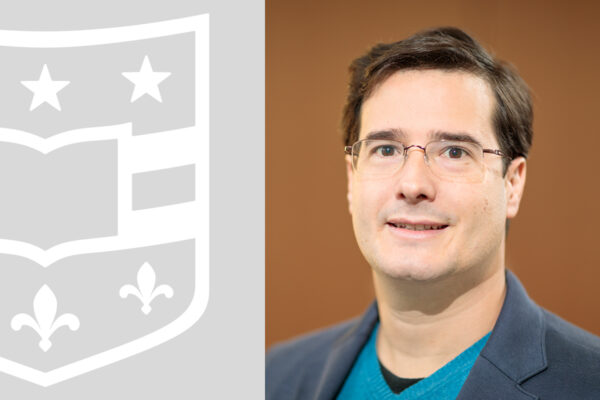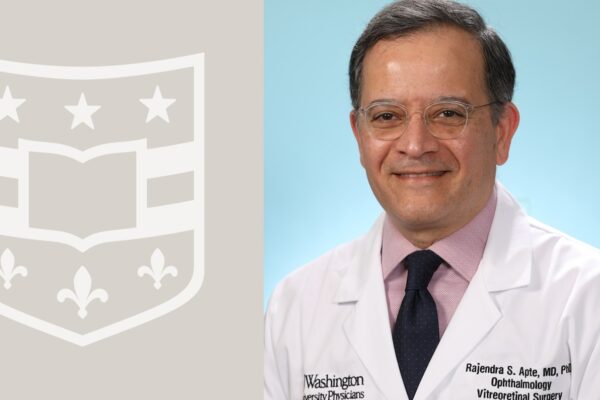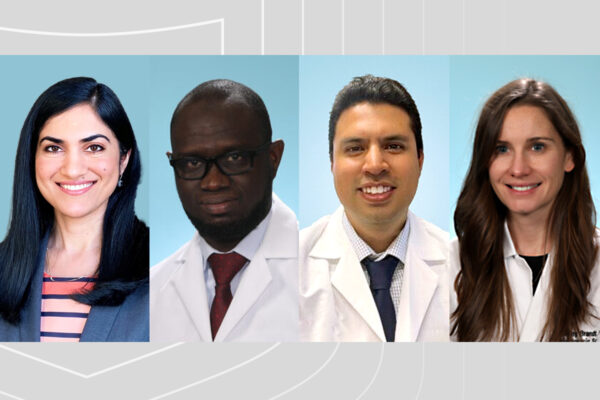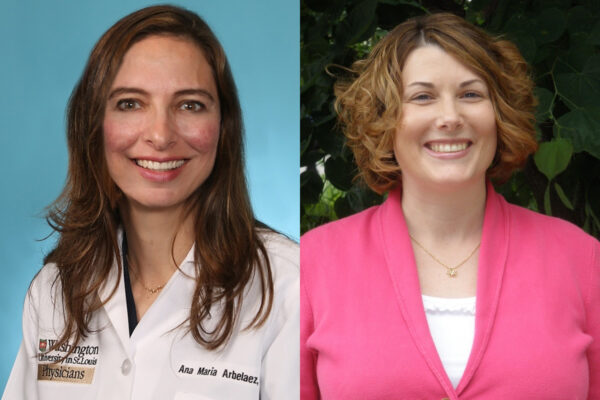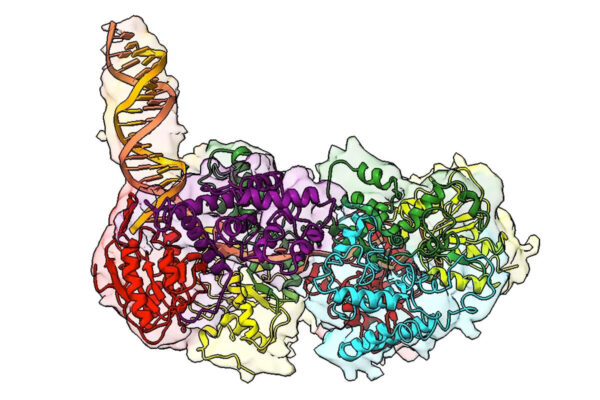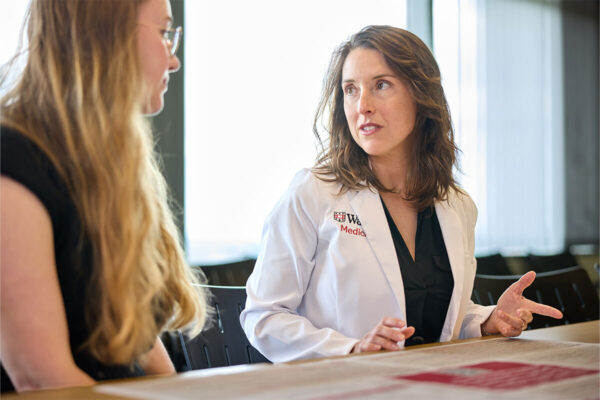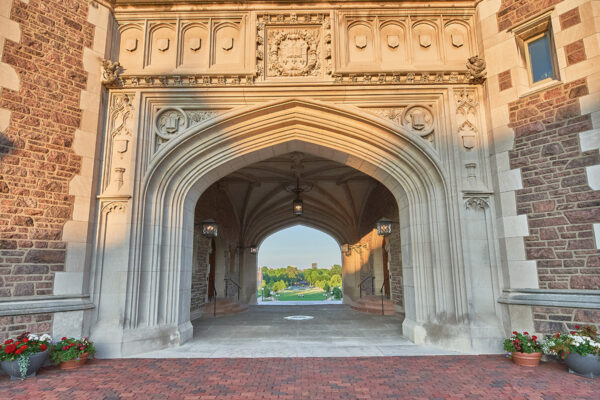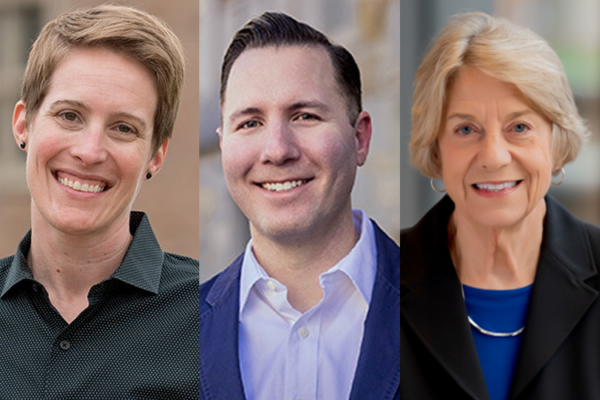Blood plasma reveals shared pathways in neurodegenerative diseases
WashU Medicine researchers have identified biomarkers of Alzheimer’s, Parkinson’s and frontotemporal dementia from blood plasma, suggesting new therapeutic avenues.
Apte honored for contributions to vision science
Rajendra S. Apte, MD, PhD, the Paul A. Cibis Distinguished Professor and vice chair of innovation and translation in WashU Medicine’s John F. Hardesty, MD, Department of Ophthalmology & Visual Sciences, has received the 2025 Retina Research Foundation’s Gertrude D. Pyron Award.
Four physician-scientists named Dean’s Scholars
The Division of Physician-Scientists at WashU Medicine has selected four physicians for its sixth class of Dean’s Scholars. The awardees will receive up to two years of financial support and mentorship, as well as dedicated lab time to conduct scientific research.
Pediatrics names two new co-vice chairs
Ana Maria Arbeláez, MD, and Stephanie A. Fritz, MD, have been named co-vice chairs of clinical investigation in the Department of Pediatrics at WashU Medicine.
Key component to cell division unveiled in 3D
A new study from WashU Medicine researchers describes the structure of an important protein that unspools the DNA molecule so the DNA can be repaired. Interfering with the protein could prove useful in developing new therapeutics for tuberculosis or other diseases caused by organisms that rely on these proteins to repair their DNA.
Hepatitis C treatment is not reaching some at-risk populations
Two recent studies from researchers at WashU Medicine reveal that two vulnerable populations — children and recently pregnant women — face disparities in access to treatment for hepatitis C infection, putting them at risk of long-term health problems.
School of Public Health welcomes its first official class a year ahead of schedule
This fall, WashU officially will welcome its inaugural class of students to the new School of Public Health — a full year ahead of schedule. Applications will open in September for the fall 2026 cohort.
Brown School members recognized by Gerontological Society of America
The Brown School’s Vanessa Fabbre and Cal Halvorsen have been named 2025 Gerontological Society of America Fellows, while Nancy Morrow-Howell received the Barbara J. Berkman Award for Outstanding Interdisciplinary Research, Practice or Policy in Aging and Health Care.
WashU molecular biologists identify multifunctional virus-sensing protein
WashU Medicine researchers led by Siyuan Ding identified an immune-system protein in human cells that has the unusual capacity to respond to both DNA and RNA from pathogens, which may have implications for developing vaccines.
Global progress on physical activity at risk, WashU expert warns
Shrinking public health budgets, fraying global cooperation and rising military spending threaten decades of momentum to make physical activity a cornerstone of disease prevention, a new analysis from Washington University in St. Louis has found.
Older Stories
